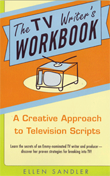Frequently Asked Questions
Your Q: Do you consult on Drama as well as Comedy?
My A: Yes, the development process I use works for both Comedy and Drama. Format and style are different, but the essential work to build your elements and structure is the same.
Your Q: Half Hour/ One Hour – does it make a difference in price?
My A: No price difference. Consultation fees and prep material are the same for Half Hour or One Hour or even short video projects.
Your Q: I notice that the fee to read and analyze script is astronomical! Why?
My A: Two reasons: A. Much more prep time for me to read and break down a script in order to analyze it and see where the problems are. B. Almost all script problems are in the story structure, not so much in the dialogue, so I want to encourage writers to opt for a development consultation which I consider to be a more effective process, and one that produces a far better and more vital script. If you have been through the development process with me where we have addressed structure issues, I then read your drafts at a much reduced rate.
Your Q: But I’ve already written the pilot script. Can I still do a development consult instead of having you read it for that exorbitant fee?
My A: Yes, absolutely! I encourage you to do exactly that. Treat your pilot script as development research on your characters and proceed to work on the re-development of your pilot with me. You’ll start with the pilot proposal template that is provided when you register for a Basic Pilot Premise Consult or for the Pilot Development Package and we’ll work from there. After you go through the development process it is likely that you will discover a new (and more effective) pilot story which you can then write as a second script, and I will then read it at the much reduced rate.
Your Q: A second script?! That sounds like too much work.
My A: Yes, it’s a lot more work. But isn’t that what you want to do? Write. Anyway, you don’t have to write another script, however, I think you may want to.
Your Q: Can I hire you to write (or re-write) my script?
My A: No. I’m your coach, not your co-writer. I do not do punch up or polish drafts. I will offer opinions on correct professional formatting. I will indicate possible cuts and I may suggest a occasional line or joke, however, you make all decisions as to how to use those suggestions and you put them down on the page.
Your Q: After I write my script, if you think it’s good enough will you help me get an agent?
My A: I do not provide introductions to representatives or buyers. What I can do is counsel you on how best to use your particular assets to make yourself and your work appealing to potential agents and managers. I can also help you prepare yourself for meetings and work with you on your pitching skills so you can make the most of those meetings.
Your Q: What about selling my pilot? Can you help me do that?
My A: I do not represent or pitch your work or ideas. I can strategize and advise you on how you can best make use of your completed pilot in pursuit of your own career goals. If you are interested in my guidance on these matters, go for the Career Strategy Consult.
Your Q: Would you ever consider attaching yourself to my project?
My A: No. I never take a shared credit for your story or your script and I take no percentage whatsoever of potential sales. I work strictly on a fee for service basis.
Your Q: Will you sign a nondisclosure agreement.
My A: Yes. I personally guarantee that I will never discuss you or your work with anyone. Most clients find that to be sufficient and I do not use a written nondisclosure agreement as a standard procedure, but if you have one you want me to sign, I will sign it.
